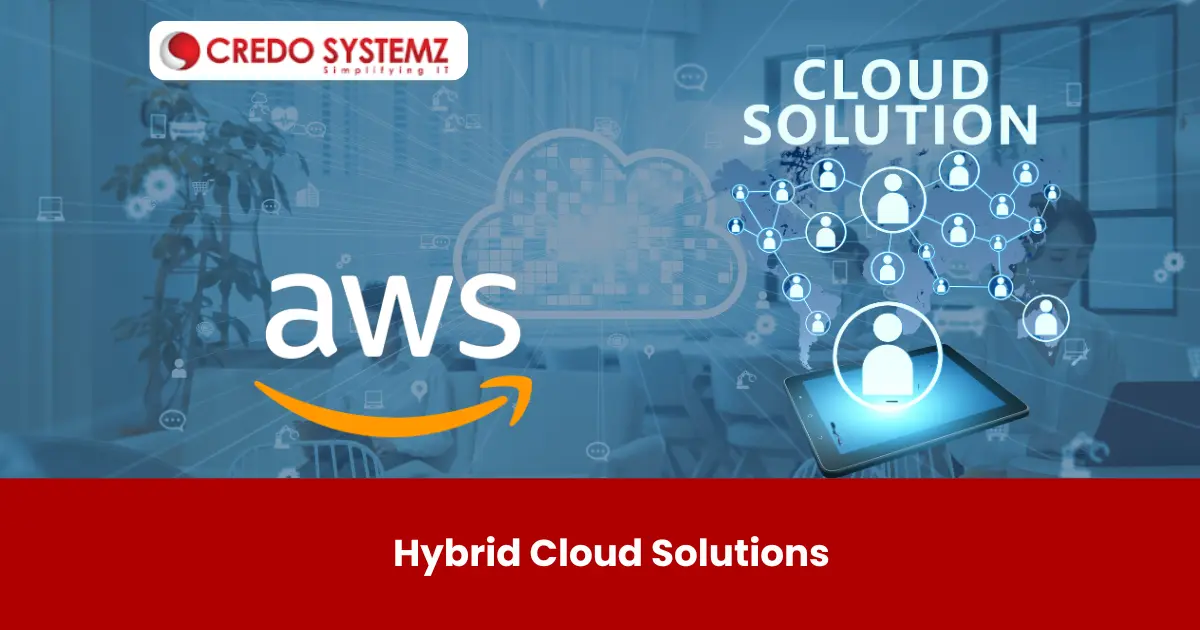
Introduction
As businesses continue to evolve in this cloud computing era, the need for effective IT infrastructures has been more critical. Amazon Web Services (AWS) is the leader in cloud computing, offering a vast array of services to empower organizations. However, many organizations rely on on-premises systems because of application requirements and performance needs. To bridge the gap between on-premises data centers and the cloud, AWS offers hybrid cloud solutions.
Basics of Hybrid Cloud
A hybrid cloud architecture is a popular computing environment that combines on-premises infrastructure or a private cloud with a public cloud. Hybrid cloud solutions allow sensitive data and applications to be shared between them flexibly. This model is effective for organizations to achieve scalability, flexibility and control over resources. Hybrid cloud is a stepping stone towards a full cloud migration that allows gradual transition of workloads and applications at their own pace. AWS Hybrid Cloud Services
AWS provides a range of services and solutions to integrate on-premises environments with AWS cloud services. It provides a consistent experience across both environments that enable businesses to extend their data centers and manage workloads. The key services of AWS for hybrid cloud environment are:
AWS Hybrid Cloud Services
AWS provides a range of services and solutions to integrate on-premises environments with AWS cloud services. It provides a consistent experience across both environments that enable businesses to extend their data centers and manage workloads. The key services of AWS for hybrid cloud environment are:
- AWS outposts,
- AWS direct connect,
- AWS storage gateway,
- AWS snow family,
Key benefits of AWS Outposts
To ensure seamless experience between on-premises and cloud environments, Outposts provides the same AWS hardware and services on-premises. This achieves constant hybrid experience and low latency. Outposts service is suitable for applications that require real-time responsiveness, like healthcare, manufacturing, and media. Organizations can meet the local data residency requirements by keeping sensitive data on-premises using AWS outposts services.
AWS Direct Connect
AWS Direct Connect is a dedicated, private network connection from on-premises infrastructure to AWS. It allows businesses to establish a high-bandwidth, low-latency connection that ensures high speed data transfer. This service is essential for companies with large volumes of data which require low-latency connections and data transfer securely and efficiently.
Benefits of AWS Direct Connect
To gain a higher level of security for sensitive data, AWS Direct connect provides a more consistent and predictable network experience. This can reduce network costs, bandwidth costs using direct connection to AWS. It increases bandwidth throughput, improves the performance and cost savings.
AWS Storage Gateway
AWS Storage Gateway is a hybrid cloud storage service that allows on-premises applications to use AWS cloud storage. It connects the on-premises environment to various AWS storage services like Amazon S3, glacier and EBS. AWS Storage Gateway provides a secure, scalable, and cost-effective storage solution. The configuration of Storage Gateway are:
- File Gateway: Provides a way to access files in AWS S3 for file-based applications.
- Tape Gateway: To retain the existing tape-based backup processes by leveraging the scalability of AWS storage.
- Volume Gateway: Allows storing volumes in AWS for both on-premises and cloud-based workloads.
AWS Snow Family
The AWS Snow Family provides physical devices to transfer large amounts of data to AWS, such as:
- Snowcone,
- Snowball,
- Snowmobile.
It offers edge computing, data migration, and storage solutions in environments when you have no or limited network connectivity
Use cases for the AWS Snow Family
The various use cases for AWS Snow family are:
- Data center migration to move petabytes of data to AWS,
- Edge computing in remote location or rugged environment, data collection in environments which have limited connectivity
- Disaster recovery to backup and restore data in the event of a disaster.
Advantages of AWS Hybrid Cloud Solutions
AWS hybrid cloud solutions offer several advantages by combining the flexibility of cloud computing with the performance of on-premises infrastructure. It allows businesses to achieve
- Scalability: Scaling the IT resources up or down based on demand,
- Cost efficiency: Optimize costs by reducing extensive capital expenditures,
- Flexibility and control: To choose where to run the workload – on-premises, in the cloud, or both.
- Enhanced security and compliance by keeping sensitive data on-premises.
Conclusion
Finally, AWS’s hybrid cloud solutions provide businesses with the best of both on-premises infrastructure and cloud environments. It allows you to extend the data center, optimize storage, or ensure seamless connectivity between environments. To master the various services of AWS, Credo Systemz offers AWS training in Chennai for all cloud aspirants. AWS hybrid cloud solutions will play a pivotal role in helping global organizations innovate and thrive in the evolving landscape.
Join Credo Systemz Software Courses in Chennai at Credo Systemz OMR, Credo Systemz Velachery to kick-start or uplift your career path.
